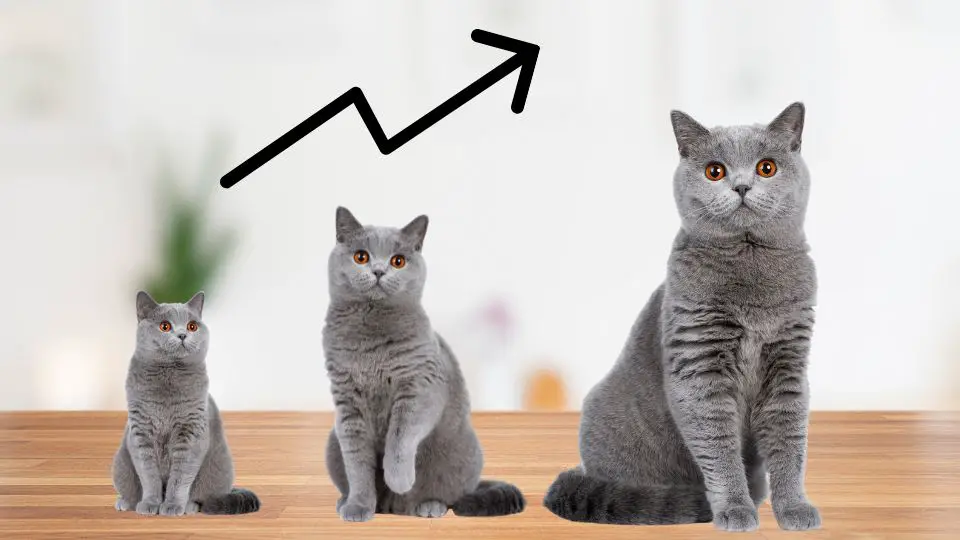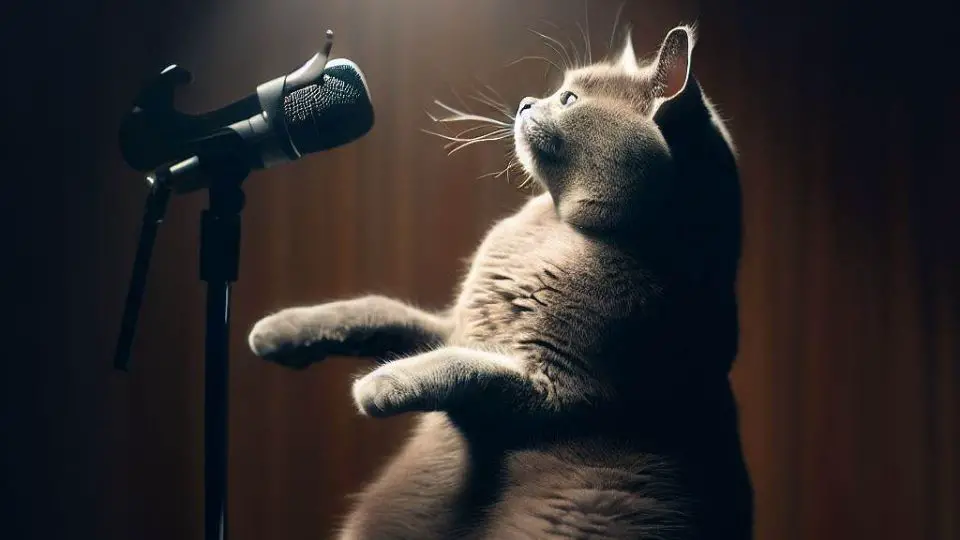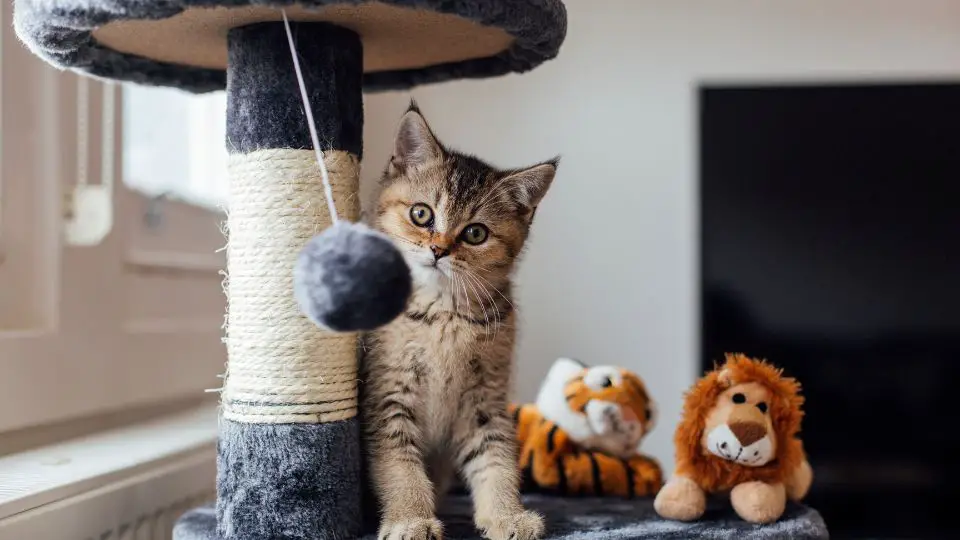If you’re considering adding a British Shorthair to your family, you may be wondering about their temperament and affectionate qualities.
The good news is that British Shorthairs are known for being affectionate cats who bond deeply with their owners. While they may not be as overtly clingy or cuddly as some other breeds, their loyalty, playfulness, and desire for attention make them wonderful companions.
In this article, we’ll explore the affectionate qualities of British Shorthairs and what factors may affect their levels of affection towards their humans.
Are british shorthairs affectionate?
Yes, British Shorthairs are known for being an affectionate breed. While individual personalities may vary, most British Shorthairs are social, friendly, and enjoy being around their owners. They are often described as being laid-back and easy-going, which can make them excellent companions.
British Shorthairs tend to bond strongly with their owners and enjoy being near their humans, and are often content to simply sit on their laps or curl up next to them on the couch. This bonding can make them very loyal pets and they will often follow their owners around the house.
Do British Shorthairs like to cuddle?
British Shorthairs don’t really like to cuddle, but they may enjoy cuddling and being held for short periods of time. Remember that they are also independent cats that value their personal space and may not always want to be held or cuddled. It’s important to respect your British Shorthair’s boundaries and preferences when it comes to affection and cuddling.
Do British Shorthair cats like to be picked up?
As a breed, British Shorthairs are generally known for their independent nature and may not enjoy being picked up or held for long periods of time. However, like any individual cat, some British Shorthairs may enjoy being picked up and cuddled while others may not.
Is British Shorthair clingy?
British Shorthairs may not be as clingy as some other cat breeds. However, they do enjoy the company of their owners and may show affection in their own unique ways.
Affectionate Qualities of British Shorthair Cats
British Shorthair cats are often described as being independent and aloof, but they are also capable of being extremely affectionate towards their owners.
Loyalty and bonding with their owners
British Shorthair cats are known for their loyalty and strong bond with their owners. Once they form a bond with their human family, they become fiercely protective and devoted. They are known to follow their owners around the house, often seeking attention and affection.
Playful and affectionate behaviors
British Shorthair cats have a playful and affectionate personality. They enjoy playing with toys and interacting with their owners. They are also known to be very vocal, often purring and meowing to show their affection. British Shorthair cats are often referred to as “lap cats” due to their love of cuddling and sitting on their owner’s lap.
Desire for attention and interaction
British Shorthair cats crave attention and interaction from their owners. They enjoy being petted and stroked, and they will often seek out their owner’s attention by rubbing against their legs or meowing for attention. They are also known to be curious and enjoy exploring their surroundings, often following their owners around the house.
Comforting and calming presence
British Shorthair cats have a calming presence and are often used as therapy animals. They have a laid-back demeanor and are known to provide comfort and relaxation to their owners. They are also great companions for people who suffer from anxiety or depression, as they are very comforting and calming.
Factors That May Affect Affection Levels in British Shorthair Cats
While British Shorthair cats are known for being generally affectionate, there are several factors that can affect the level of affection a cat displays towards their owners.
- Early socialization and handling: Kittens that are handled and socialized early on are more likely to be comfortable with human interaction and display affectionate behaviors. Kittens that are not properly socialized may be more reserved or fearful around humans.
- Individual personality and temperament: Like people, cats have their own unique personalities and temperaments. Some cats may be naturally more affectionate and crave attention, while others may be more independent and reserved.
- Health and well-being: Cats that are in good health and free from pain or discomfort are more likely to display affectionate behaviors. Cats that are ill or in pain may become withdrawn and less interested in interaction with their owners.
It is important to keep in mind that while these factors may play a role in a cat’s affection levels, each cat is an individual and may display different levels of affection based on their own unique personality and experiences.
Tips for Encouraging Affection in Your British Shorthair Cat
Here are some tips for encouraging affection in your British Shorthair cat.
Creating a comfortable and stimulating environment
A comfortable and stimulating environment can help your cat feel secure and happy, which can lead to more affectionate behavior. Provide your cat with a cozy bed, toys, and scratching posts, and make sure they have access to fresh water and food.
Positive reinforcement training
Training your cat with positive reinforcement can help strengthen the bond between you and your cat. Reward your cat with treats or praise when they display affectionate behavior such as cuddling or purring.
Regular grooming and physical touch
Regular grooming and physical touch can help your cat feel more comfortable and relaxed around you. Brush your cat’s fur, trim their nails, and give them gentle massages to encourage physical touch and bonding.
Time and attention
Spend quality time with your cat every day, playing, petting, and cuddling with them. Consistent attention and affection can help your cat feel loved and secure in your home.
Conclusion
In conclusion, British Shorthair cats are generally known for their affectionate and loving nature towards their owners. While individual personality and temperament may vary, most British Shorthairs enjoy spending time with their owners, playing, cuddling, and seeking attention.
By creating a comfortable and stimulating environment, using positive reinforcement training, regular grooming and physical touch, and giving your cat time and attention, you can encourage and strengthen the bond between you and your British Shorthair.
Overall, British Shorthairs are a wonderful and affectionate breed that can make great companions for those seeking a loving and loyal pet.







